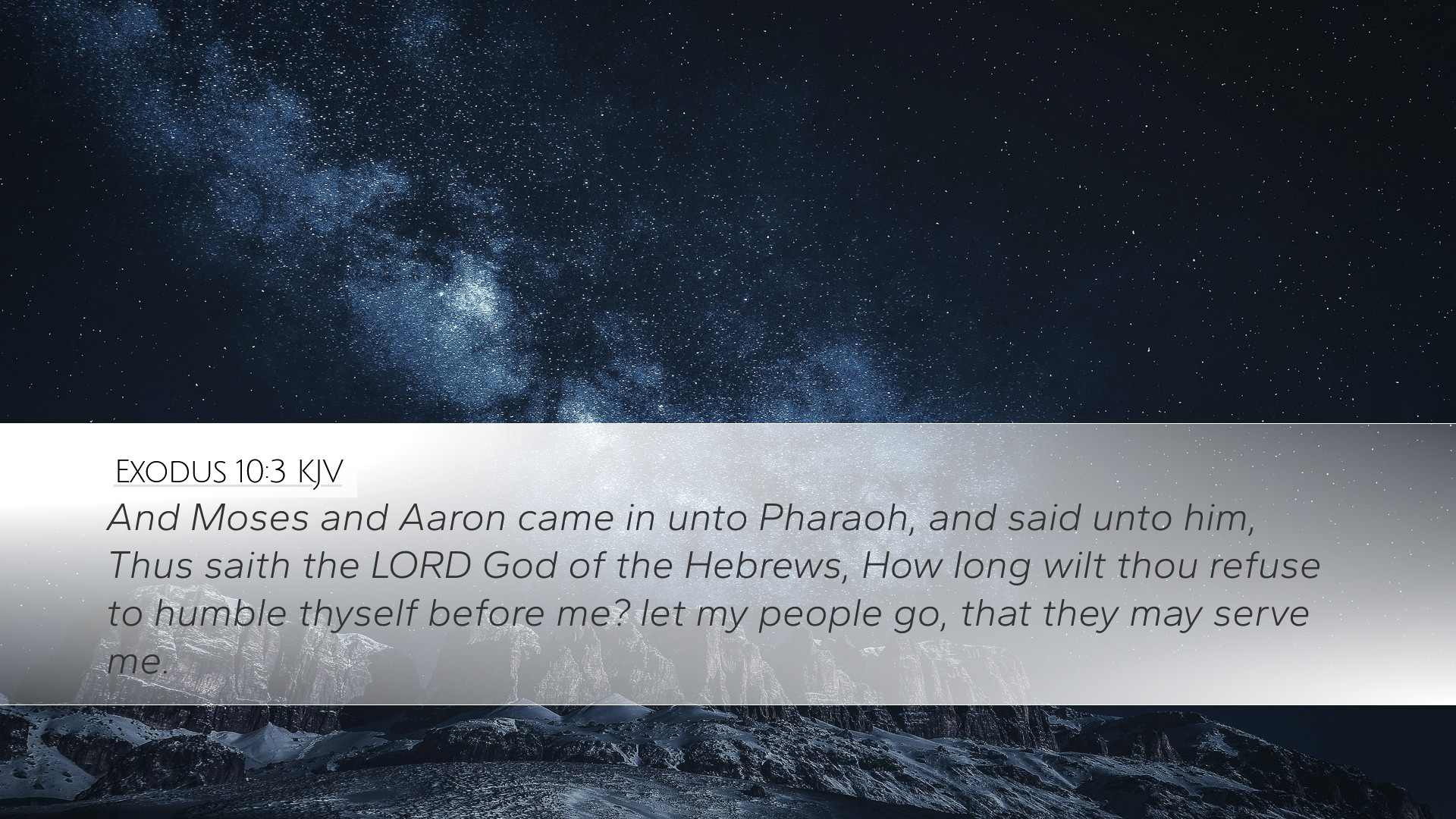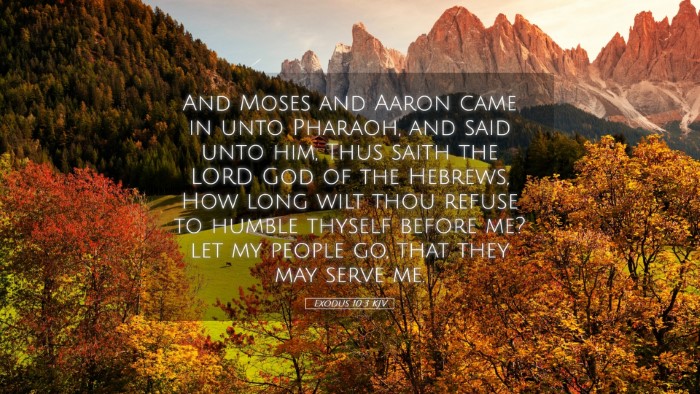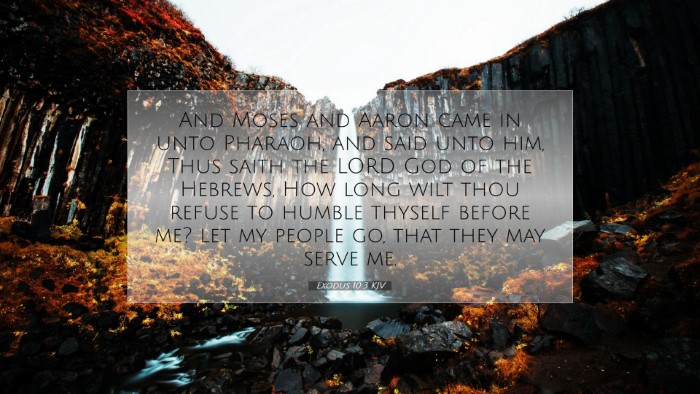Exodus 10:3 - Commentary
Exodus 10:3 states, "So Moses and Aaron went in unto Pharaoh, and said unto him, Thus saith the LORD God of the Hebrews, How long wilt thou refuse to humble thyself before me? let my people go, that they may serve me." This verse serves as a pivotal moment in the account of the Exodus, highlighting both the authority of God and the stubbornness of Pharaoh.
Contextual Background
The narrative occurs during the plagues that God sent upon Egypt as a demonstration of His power and a means to bring His people, the Israelites, out of bondage. Pharaoh’s heart had been hardened repeatedly, exhibiting his defiance against the commands of Yahweh.
The Role of Moses and Aaron
Moses and Aaron, chosen leaders of the Israelites, approach Pharaoh with a divine message. This highlights their role as mediators between God and His people, serving both as instruments of God’s will and as representatives of the oppressed Israelites.
The Question of Humility
The Lord's question to Pharaoh, "How long wilt thou refuse to humble thyself before me?" serves as an indictment against Pharaoh's pride and obstinacy. The mention of humility is significant as it reflects the broader theme of submission to God evident throughout Scripture.
- Matthew Henry Commentary: Henry notes that God desires humility, and Pharaoh’s refusal represents a broader human inclination to resist divine authority.
- Albert Barnes Notes: Barnes emphasizes that humility before God is not merely a personal disposition but a prerequisite for experiencing God’s salvation and grace.
- Adam Clarke's Commentary: Clarke suggests that acknowledging God’s authority necessitates a recognition of one’s own lowly status, further underscoring the spiritual state of Pharaoh.
The Significance of 'Let My People Go'
The command to "let my people go, that they may serve me" is central to God's plan for Israel. It encapsulates the purpose of their liberation: to serve God freely. This underscores several theological points:
- Divine Ownership: The phrase indicates that the Israelites are not merely a people but belong to God. It resonates with the broader biblical view of God's people.
- Purpose of Freedom: The deliverance from Egyptian bondage is tied to their ultimate purpose—worship and service to Yahweh, which should inspire every believer to reflect on their own call to serve God.
- A Call to Awareness: This calls us to consider our own bondage to sin or worldly distractions and highlights the importance of serving God with our lives.
Pharaoh's Response and Stubbornness
The verse lays the groundwork for what follows: Pharaoh’s hardened heart leads to further consequences for both the Egyptians and the Israelites. This recurring theme of hardness of heart is critical for understanding the moral lessons intended through these events.
- Matthew Henry: He points out that Pharaoh's strife against God's demand showcases the tensions inherent in the human relationship with divine authority.
- Albert Barnes: Barnes views Pharaoh's defiance as emblematic of humanity's resistance to God’s will, thus providing timeless insight into spiritual disobedience.
- Adam Clarke: Clarke remarks that Pharaoh's refusal reveals the arrogance displayed when one stands in opposition to God's commands, which serves as a warning to all generations.
Theological Implications
This verse draws fundamental conclusions relevant to theology and practice today. It asks critical questions of integrity, authority, and purpose:
- Authority of God: God’s supremacy is emphasized, urging believers to recognize His commandments as binding and essential for spiritual life.
- The nature of true servitude: Serving God is portrayed as a higher calling beyond mere obedience—it's about fulfilling one’s purpose in communion with the divine.
- Human Condition: The pervasive theme of human sinfulness and resistance to God prompts us to reflect on our response to His call.
Conclusion
Exodus 10:3 presents a crucial moment in God's redemptive history, where the call to humility and obedience is issued to a proud ruler. The insights drawn from various public domain commentaries offer a multi-faceted view of this text that is invaluable for pastors, students, theologians, and scholars alike. As we study this verse, may we learn to recognize the tendency to harden our hearts and instead choose to humble ourselves before the Lord, aligning our lives to serve Him fully.


